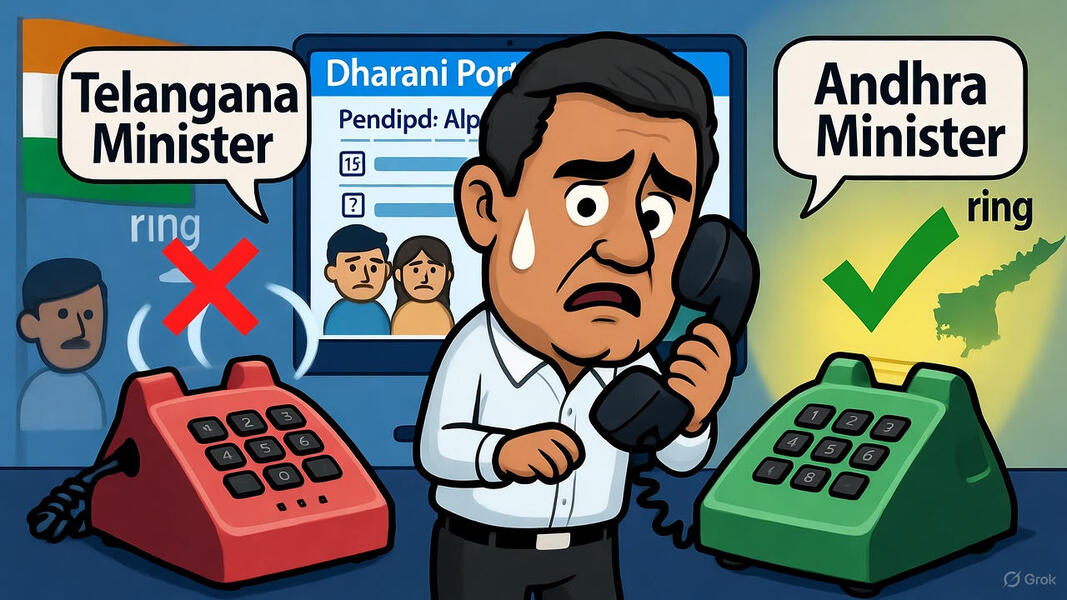Article Today, Hyderabad:
A confidential report compiled during the tenure of former Telangana Oilfed Managing Director Ashok Reddy has brought to light large-scale irregularities within the corporation. The IAS officer, who served for only a few months, had initiated a detailed inquiry into previous administrative and financial decisions. His report focused particularly on the tenure of former MD Surender, exposing mismanagement, financial discrepancies, and procedural violations.
Action Halted Midway
Before the recommendations in the report could be acted upon, Ashok Reddy was transferred. Insiders claim that the report was subsequently buried under pressure from vested interests within the department. Several Oilfed employees now demand that the report be made public, asserting that if its findings are acted upon, many senior officials currently in service would face suspension.
Scope of the Investigation
The report comprehensively covers activities over a five-year period, including Oil Palm cultivation, nursery development, tendering processes, and international seedling imports. Key decisions involving hundreds of crores of rupees were allegedly manipulated for personal gain. In one instance, a major irregularity involving saplings at the Ashwaraopet nursery led to the identification of a responsible officer, from whom ₹40 lakh was ordered to be recovered. However, that recovery was stalled due to internal protection from senior officials.
Defective Seedlings and Genetic Flaws
The report flags serious issues in the distribution of oil palm seedlings. A large number of plants distributed from nurseries in Narumvarigudem (Ashwaraopet) and Regallapadu (Sattupalli) were found to be genetically flawed or off-type. In some batches, up to 50% of the plants were defective. These plants eventually reached farmers’ fields, resulting in significant crop failures.
Concentration of Power and Misuse
The report criticizes the centralization of key responsibilities within Oilfed under one official, Tirumaleshwar Reddy, who allegedly held control over marketing, finance, and procurement divisions. It recommends decentralization and reallocation of responsibilities to avoid conflict of interest and unchecked authority.
Negligence in Market Share
Despite opportunities, Oilfed failed to increase its share in the cooking oil market. The report highlights a lack of proactive measures to counter the growing influence of private oil companies. While competitors expanded their reach, Oilfed lagged due to strategic failures.
Factory Project Plagued by Irregularities
A proposal to build a factory at Narmetta at an estimated cost of Rs. 247 crore was approved by the board. However, the report questions the sudden reappearance of alternative proposals for factories at Beechupalli and Thorrur. It seeks clarity on who revived these dormant plans and for what purpose.
Private Players Unchecked
Thirteen private companies were allocated zones for palm oil processing. However, even after plantations became operational, none of these firms built the promised processing factories. The report criticizes Oilfed for failing to enforce accountability despite massive public investment.
From Profits to Debt
The report notes that before 2021, Telangana Oilfed was profitable. But following administrative changes and questionable project implementations, the organization is now steeped in debt. Mismanagement, poor financial oversight, and conflicts of interest are cited as key reasons for the decline.
Conflict of Interest within Staff
Some Oilfed employees allegedly functioned as sub-contractors, forming close ties with private firms and compromising institutional integrity. These dual roles raised serious ethical and legal concerns, according to the report.
Preferential Treatment in Tenders
The Narmetta factory contract was controversially awarded to Pre-Unique Company, even though Japro Company had submitted a lower bid. Technical excuses were used to favor Pre-Unique, raising suspicions of collusion. Pre-Unique was also awarded nearly ten other major projects.

Unnecessary Procurement for Commissions
In facilities at Apparaopet and Ashwaraopet, machinery and spare parts were procured without actual need, allegedly to secure commissions. The key officer behind these procurements, the report claims, continues to hold a significant position in the



